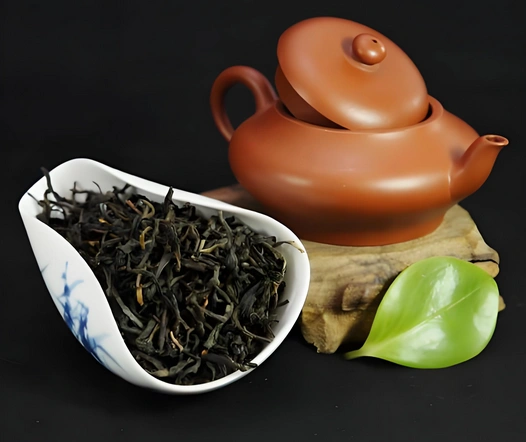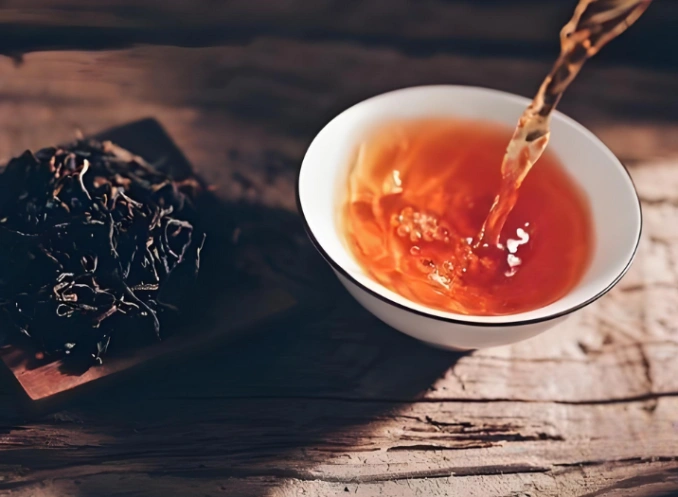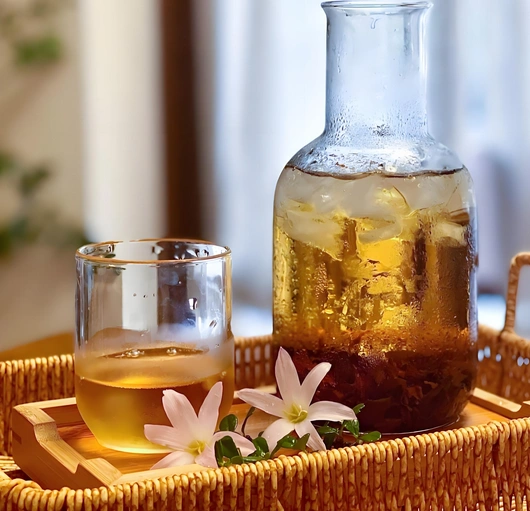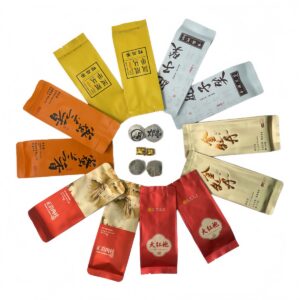Black tea as coffee alternative offers a rich, nuanced energy boost that delights the senses and sustains focus without the coffee jitters. Imagine inhaling warm malted aromas as amber liquid swirls in your cup, the first sip settling like a silky hug in your chest—clarity replaced fatigue. In this guide, we’ll explore why swapping your daily espresso for black tea as coffee alternative can revolutionize your routine. You’ll learn about caffeine content and the calming L‑theanine effect, discover benefits for office workers, master both hot and cold brews, and uncover health and wellness perks that extend beyond mere stimulation. Let’s steep, sip, and thrive.
Embracing Black Tea as a Coffee Alternative
Why Swap Your Daily Brew?
For many, morning coffee feels like a ritual: the machine’s hum, the rich aroma, the bold first sip. Yet caffeine crashes and midday jitters often follow. Enter black tea as coffee alternative, blending moderate caffeine with gentle clarity. Its full oxidation yields deep flavor—think toffee, roasted nuts, and hints of dark fruit—inviting you to savor rather than rush. By making the switch, you can enjoy sustained energy, smoother focus, and a sensory experience that feels both indulgent and balanced.
Black Tea vs Coffee Caffeine: A Comparative Look
On average, an 8‑ounce cup of coffee contains 95 mg of caffeine, while the same volume of black tea offers 40–70 mg Nawrot2003. Though lower, tea’s caffeine pairs with L‑theanine—an amino acid that promotes alpha‑wave brain activity—resulting in calm alertness rather than spikes and crashes. Studies show tea drinkers report less anxiety and more stable energy levels compared to coffee consumers .

Understanding Black Tea Caffeine Content
How Much Caffeine Is in Your Cup?
Caffeine levels vary by leaf type, steeping time, and water temperature.
- Standard Steep: 3 g leaves in 200 ml water at 95 °C for 3 minutes yields about 50 mg caffeine.
- Longer Steep: Extending to 5 minutes can push levels toward 70 mg.
- Cold Brew: Lower temperatures extract caffeine more slowly but still deliver a refreshing 30–40 mg per 8 oz.
Knowing your ideal caffeine range lets you tailor black tea caffeine content for gentle mornings or powerful afternoons.
Gentle Energy: The L‑Theanine Effect
L‑theanine in black tea modulates caffeine’s impact, smoothing neural signals and fostering relaxation without drowsiness. Research indicates that combining L‑theanine (50 mg) with caffeine (40 mg) enhances attention and reaction time more than caffeine alone Unno2018. This synergy makes black tea as coffee alternative uniquely capable of boosting mental performance with poise.
Benefits for Office Workers
Sustained Focus Without the Jitters
Long meetings and looming deadlines demand clear-headed stamina. Swapping your mid‑morning latte for black tea as coffee alternative can:
- Extend Alertness: Moderate caffeine levels stave off the 3 pm slump without overloading the nervous system.
- Reduce Anxiety: The L‑theanine blend eases stress, preventing the racing heart common after double espressos.
- Improve Hydration: Tea contributes to daily fluid intake, unlike dehydrating specialty coffees.
Incorporating Black Tea into Work Routines
- Scheduled Steeps: Block 5‑minute breaks every 90 minutes to brew and mindfully sip.
- Tea Infusion Stations: Keep leaves in a jar on your desk and hot water in a thermos for instant refreshment.
- Flavor Variety: Rotate between malty Ceylon, brisk Darjeeling, and smoky Keemun to prevent palate fatigue.
By adopting black tea for office workers, you transform mundane breaks into rejuvenating rituals that sharpen productivity.

Brewing Methods for Optimal Flavor
Classic Hot Steep vs Cold Brew
- Hot Steep: Brings out robust, complex notes. Use 95–100 °C water, steep 3–5 minutes.
- Cold Brew: Infuses overnight in the refrigerator for a smooth, low‑tannin infusion—ideal for hot days and sensitive stomachs.
Each method highlights different facets of black tea as coffee alternative, from bold warmth to crisp refreshment.
Mastering Black Tea Cold Brew
- Leaf Ratio: 8 g leaves per 500 ml cold water.
- Infusion Time: 8–12 hours in fridge for balanced caffeine and flavor.
- Serve: Strain over ice, garnish with citrus or a sprig of mint for sensory delight.
Cold brew’s gentle extraction emphasizes sweet, honeyed undertones and produces ~30 mg caffeine per cup—perfect for a calm yet awakened state.
Health & Wellness Perks
Antioxidants Beyond Caffeine
Black tea teems with polyphenols—tea theaflavins and thearubigins—that neutralize free radicals, supporting cellular health and reducing inflammation. Regular consumption links to lower risk of heart disease and metabolic syndrome . Enjoying black tea as coffee alternative means you’re sipping on disease-fighting compounds with every cup.
Heart, Gut, and Mind Support
- Heart Health: Theaflavins help lower LDL cholesterol and improve arterial function.
- Gut Wellness: Polyphenols feed beneficial bacteria, promoting digestion and nutrient absorption.
- Mental Clarity: L‑theanine fosters calm focus, reducing stress and enhancing mood.
These holistic benefits make black tea as coffee alternative more than an energizer—it’s a daily wellness elixir.
Comparing Taste & Ritual
Flavor Profiles: Tea’s Subtle Nuance
Unlike coffee’s bold bitterness, black tea offers layered characters—malty, floral, fruity, or smoky—depending on origin and processing. This nuanced spectrum invites slow exploration, heightening mindfulness with each nuanced sip.
Creating Your Perfect Tea Ritual
- Mindful Moment: Pause work notifications, breathe in the steam.
- Sensory Engagement: Observe the deep amber hue and inhale the complex aroma.
- Savor Slowly: Let each sip linger, noting shifts in flavor and aftertaste.
By crafting a personalized black tea ritual, you weave intentional care into your busy day.

Integrating White Tea for Balance (Optional)
White Tea’s Delicate Touch
White tea boasts high catechins—gentle antioxidants that complement black tea’s theaflavins. Blending the two softens bold edges, adding floral sweetness and a lighter mouthfeel.
Blending Tips for Smooth Energy
- Ratio: Two parts black tea to one part white tea.
- Steep: 90 °C water for 3 minutes to preserve white tea’s fragile compounds.
- Enhancements: A lemon slice or a drop of natural honey elevates both taste and antioxidant synergy.
This fusion ensures black tea as coffee alternative retains its energizing core while offering soothing balance.
Conclusion
Choosing black tea as coffee alternative is an act of self-kindness—embracing moderate, mindful energy over caffeine spikes and crashes. From understanding caffeine content and the L‑theanine blend to mastering hot and cold brews, you gain tools to craft an invigorating ritual tailored to your life. Office workers find sustained focus, health seekers reap antioxidant rewards, and everyone enjoys a sensory journey that transcends mere caffeine. So steep with intention, savor each nuanced note, and let black tea as coffee alternative become your companion on the path to energized, balanced days.



